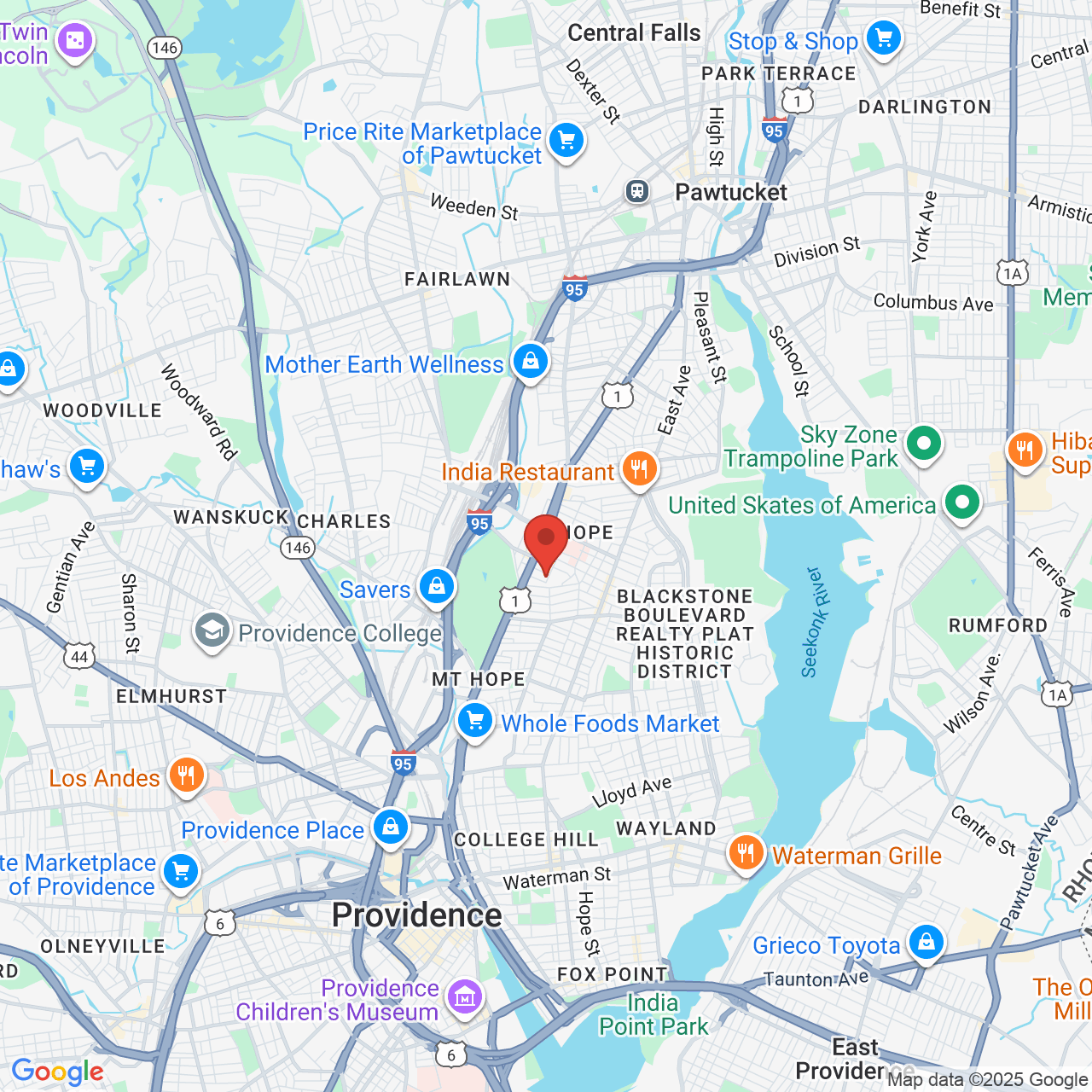Refractive Lens Exchange Providence, RI Enhancing Your Vision With IOLs
- Both Traditional & Femto Laser-Assisted Surgery
- Premier Intraocular Lens (IOL) Options
- Board-Certified Ophthalmologist
- Virtual Consultations Available
Why Providence Chooses Galler Eye Care for RLE
RLE and other surgical vision enhancement procedures are widely available. However, it's important to choose the right provider in order to experience the very best benefits. Here are just a few reasons why so many throughout Rhode Island have chosen Galler Eyecare Associates for RLE and other ocular health treatments:
Tech for All Needs
We can use the femtosecond laser—the same used in LASIK—to perform RLE for the right candidates. However, for those who do not qualify for laser-assisted RLE surgery, Dr. Ezra Galler can provide traditional blade-based procedures. We proudly use the latest tech, but will ultimately provide the procedure that's best for your needs.
A Wide Range of IOLs
Like glasses lenses and contacts, intraocular lenses (IOLs) are available in a wide variety to accommodate a range of needs. Galler Eyecare Associates can provide you with the lens that will optimize your vision and meet other needs, including astigmatism correction. A detailed screening will allow us to identify the best IOL for you.
RI's Vision Care Leader
Dr. Ezra Galler is a true leader in ophthalmology in Rhode Island, with experience spanning more than 30 years. He was the first in the state to perform LASIK, and has performed more LASIK procedures than any other doctor in the state. He was also the first to offer the EVO ICL implantable lens.
Request an RLE Consultation At Galler Eye Care in Providence

When you choose the right provider, RLE is a low-risk, highly rewarding procedure that can give you the power to rely on your own eyes to view the world around you.
Patients trust their vision to Dr. Galler because of his outstanding experience and forward-thinking approach. Patients also appreciate his commitment to providing what's truly best for the individual, whether that requires cutting-edge tech or a more traditional approach.
If you're ready to request a consultation, write to us or call:
RLE: The Basics
Refractive lens exchange (RLE) is a procedure that shares many similarities with cataract surgery. They both primarily involve replacing the crystalline lens (the disc of tissue behind the iris that helps focus light onto the retina) with an IOL. While cataract surgery is performed to replace a crystalline lens in order to eliminate a cataract and enhance focus, RLE is performed to enhance focus regardless of whether you have cataracts.
If you want to minimize your need for corrective eyewear but are not a candidate for LASIK or other surgical vision enhancement solutions, RLE may be a good solution for you.
“I can't say enough good things.”
I’ve been seeing Dr. Galler for several years and more recently Dr. Z. I can’t say enough good things about this practice and have consistently received excellent care. Highly recommend!
View on GoogleRLE vs. LASIK When Is RLE the Better Choice?
Since gaining FDA approval more than 25 years ago, LASIK has been used to help millions worldwide minimize—and in some cases, eliminate—their need for prescription eyewear. However, LASIK isn't right for everyone. Fortunately, RLE can provide similar results for those who cannot safely undergo LASIK. Dr. Galler may recommend RLE if:
You Have Severe Hyperopia
When it comes to correcting severe hyperopia with LASIK, the results are not as predictable as treating myopia (nearsightedness), and there is a greater risk of regression (reversal of the results) over time. Patients with extreme hyperopia are often better candidates for RLE. During the procedure, Dr. Galler can place an IOL that is designed to correct severe hyperopia while enhancing focus at all distances.
You Have Early-Stage Cataracts
It's not necessary to undergo cataract surgery at the very earliest signs of the condition. However, if patients want to minimize their need for glasses and take preemptive action against cataracts, they can elect to undergo RLE at that time. Cataracts can begin developing as early as age 40. It's recommended that you have an eye exam about every two years after age 40; if you are due for an exam, request a consultation with us today.
Conditions like keratoconus can preclude you from undergoing RLE. We will perform an in-depth analysis to determine the right procedure for your needs.
Bringing Clarity to Your Vision
Discover How Intraocular Lenses Can Transform Your Sight and Improve Your Quality of Life
Frequently Asked Questions About RLE in Providence
Dr. Galler is an ophthalmologist known for taking plenty of time during every consultation to answer questions and help patients make an informed decision about their eye care. If you have questions about refractive lens exchange, we invite you to request a consultation at our Providence office. In the meantime, here are answers to some of the most frequently asked questions about RLE:
Is RLE covered by insurance?
If your vision has been compromised to a certain degree by cataracts, most insurance plans will contribute to the cost of surgery. However, if you choose to undergo RLE before that point, you can expect to pay out of pocket for the procedure.
How much does RLE cost?
This is largely dependent upon the type of IOL you choose. Generally speaking, IOLs that correct vision at multiple distances cost more than those that correct for only one distance. During your consultation, Dr. Galler can explain your options and provide an estimated cost of treatment.
How long does RLE surgery take?
RLE is a relatively short procedure that takes about 10 to 30 minutes per eye. You will need to plan to stay in our office for about an hour after surgery. Once you are cleared, a loved one can take you home to rest.
Does RLE surgery hurt?
Surgery is virtually painless. We will administer topical medication to numb the surgical area, and you will receive medication before surgery to help you relax. Some discomfort during recovery is common for a few days after the procedure, but this typically only involves a feeling of tenderness or grittiness. This can be easily controlled using over-the-counter pain meds.
How long does it take to adjust to an IOL?
This timeline is different for every patient, but many patients experience noticeably improved vision within a few days to a few weeks. It could take up to six months to completely adjust.
What are IOLs made of?
IOLs are made of materials like acrylic or silicone. They also contain protection against ultraviolet (UV) rays to prevent harmful effects on your vision.



